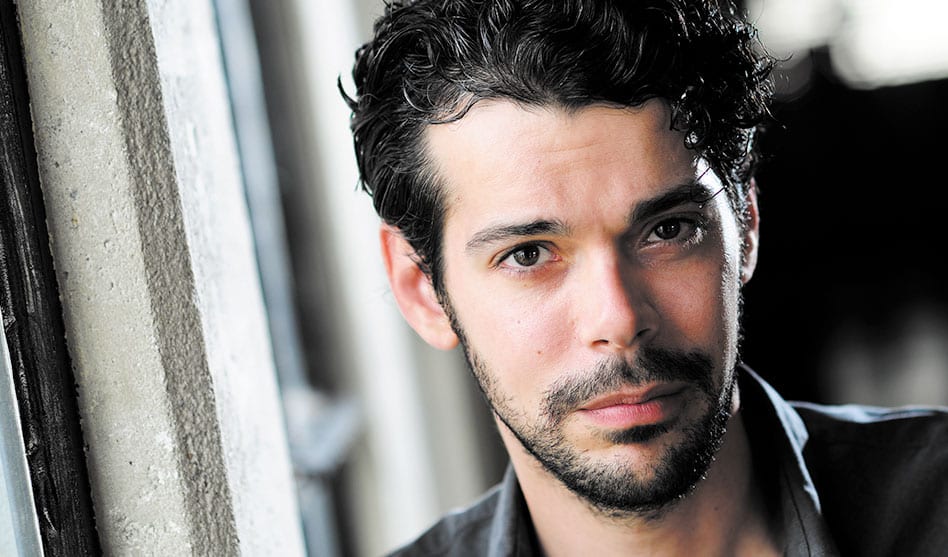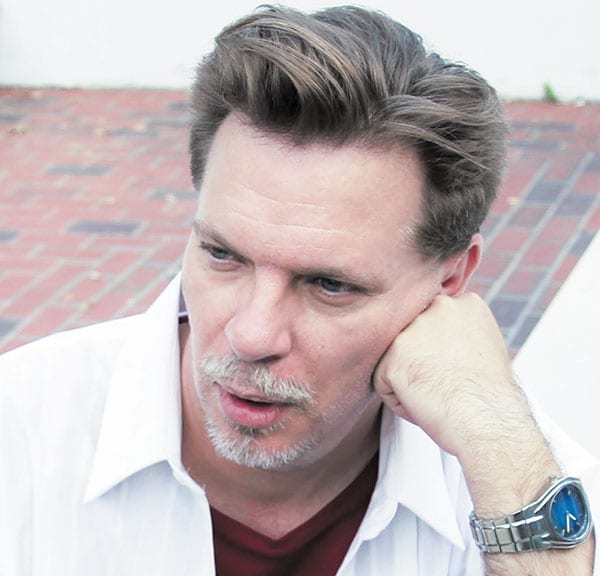Classics Theatre Project artistic director Joey Folsom.
ARNOLD WAYNE JONES | Executive Editor
jones@dallasvoice.com
Greg Patterson has spent more than a decade in the North Texas theater scene, though you probably won’t recognize his face. First at Dallas Theater Center, then at WaterTower Theatre (where last year he stepped down as managing director), he has been a behind-the-scenes kinda guy — money and development, not acting and directing. But for several years he has thought how nice it be to have a troupe to call his own.
“The thing is, I’m one-half of the equation — certainly not the artistic side,” Patterson jokes. To make the dream a reality, he needed a creative force who shared his vision.
He found one in Joey Folsom, himself a seasoned actor, director and producer around town. “I knew Joey from my WaterTower years and always had great respect for him as an artist,” Patterson says. “So I threw out the idea of creating a theater company that focused on so-called ‘classics,’ and how relevant so many of them are today.”
“When I heard the seed of the idea I responded to it immediately,” Folsom says. “The elements that were being discussed could bring something to the community.”
In particular, Folsom was intrigued by the idea of a professional theater company dedicated to producing works from the canon other than Shakespeare. And so was born the Classics Theatre Project, which opens its first production later this month.
There seems to be an interest in the market. Patterson notes that 100 actors turned up for open auditions, and tickets have been selling briskly for a new company. “The response has been really positive and overwhelming,” he says.
“A lot of places we see these iconic shows are in community theater. [Professional companies] are all about new-new-new,” Folsom says. “I love being involved with that stuff, but it loses its [luster].”
There’s a reason, of course, that plays by the likes of Ibsen and Strindberg — but also up to Arthur Miller and Sam Shepard — continue to resonate even decades after they were first produced: They speak to something essential in the human condition.
And the one that itched Folsom was Chekhov’s The Cherry Orchard. “I had a spot for that particular story when I reread it in college,” he says. Then about a year ago, Folsom’s long-time friend Ben Schroth got the same itch.
“Joey and I were having meetings with another company to plan future shows for them, and one idea that came up was The Cherry Orchard,” Schroth recounts. “At the time, I was really obsessed with Chekhov and said, ‘If you do Cherry Orchard then I’m doing script preparation for you, and I won’t take no for an answer.’” That idea petered out, but not Schroth’s obsession. So what is it about the play that speaks to him?
“I’ve been trying to figure it out. There’s an ‘it’ factor, where a play really grabs you and seems both art and real life,” he says. “That’s Chekhov’s big strength. I love the characters — they are all just flawed and at cross-purposes constantly. The audience knows what’s going on and it’s funny and poignant that the answer is right in front of them, but they can’t get to it.”
So, when Folsom and Patterson called to ask about the status of the script, Schroth replied, “It’s ready to go.”
Well, maybe not totally ready. Folsom and Schroth both agree that the way a classic like Cherry Orchard — written more than a century ago originally in Imperial Russia — still resonates with contemporary audiences is by being true to its essence, but translating it for a modern ear.
“My job was to clean up the script for American audiences so they would see something spontaneous,” Schroth says. “The [productions of] Chekhov that I see around the world, with few exceptions, is very British, very stilted — clumsy grammar that has been part of Chekhov for a century now. And that’s what I was trying to work out of the script.”
“Ben and I met when I did SubUrbia at Upstart, but we have only worked together a few times. I appreciate his ideas and candor, and the adaptation that Ben has punched should roll off the tongues of the actors.”
“If the language is spontaneous, it becomes translucent, and you don’t pause for a second because you feel like you are seeing real life,” Schroth adds.
It also helps to modernize even the subtext for a more open society. “Joey and I did discuss [how we think] the rich, privileged older man is probably gay, because he’s not interested in any of the girls onstage and keeps arguing with the servant, who is the boy-toy [of his sister], and whom he is probably attracted to,” say Schroth, who, like Patterson, is gay. That may or may not have been in Chekhov’s mind, but it fleshes out written characters and makes them real human beings.
Folsom puts it this way: “There’s a lot of opportunity [in The Cherry Orchard] to associate with someone onstage. I have a second and a third show in mind, but right now we want to produce plays that resonate [with what is going on in the culture]. I wanted something engaging yet topical, and The Cherry Orchard is not a heavy drama. The Crucible is topical, but too heavy for a first show. I wanna do it, just not right now!”

















